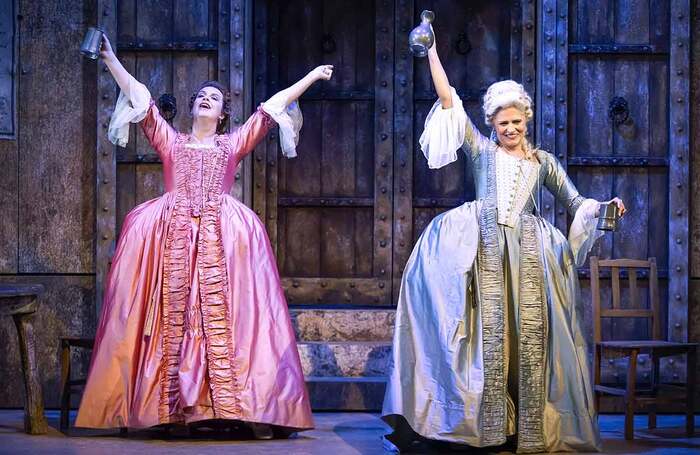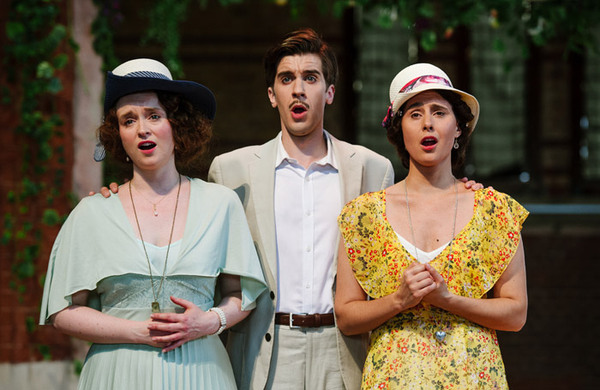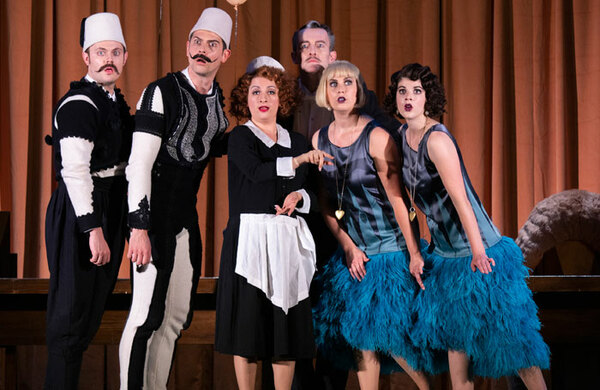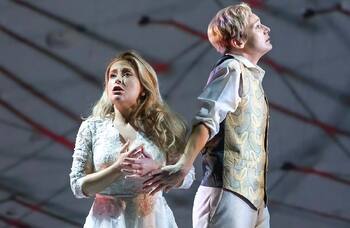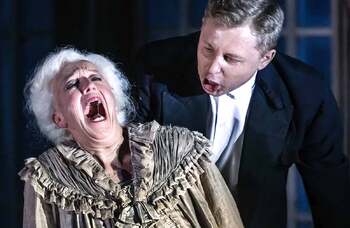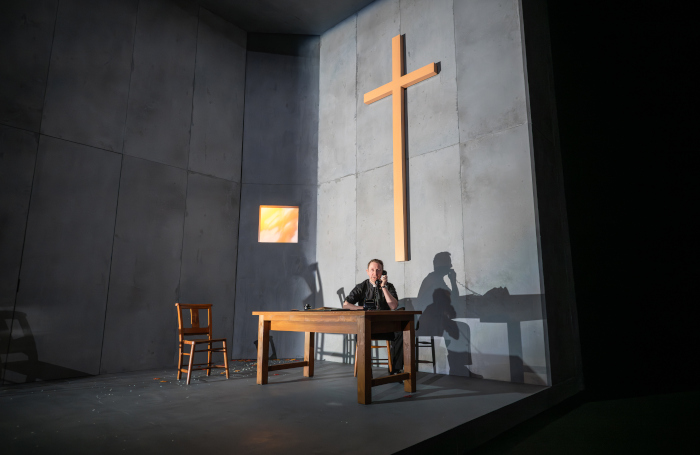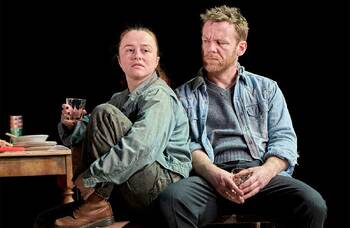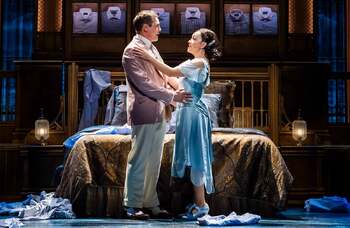Così fan tutte review
Handsome production emphasises the ambiguity of Mozart’s ‘School for Lovers’
These days, it is almost a revolutionary act to set Mozart’s dark comedy in its original location (Naples) and period (Mozart’s own); but in many respects, Martin Lloyd-Evans’ production is unconventional.
Placed on the street side of Dick Bird’s complex, revolving set, the initial argument that initiates the immoral and foolish bet that launches the action takes place outside the brothel from which Ferrando and Guglielmo – about to test their fiancées’ fidelity – have just emerged. Entirely confident of their victory over cynical old Don Alfonso, it’s clear that Guglielmo, at least, is already contemplating spending his winnings on the sex worker standing at the corner.
Mozart and librettist Da Ponte have been accused of misogyny in appearing to demonstrate that, as the provocative title states, All Women Behave Like This. But in fact, none of the characters comes out of what the alternative appellation calls The School for Lovers with their reputation intact. The production’s final gesture – Despina hitting Alfonso so hard that he falls over – may not be entirely original, but as with the rest of Lloyd-Evans’ interpretation, it’s very much to the point.
In visual terms, this is a handsome show with a series of clever and elegant settings. Individual performances, meanwhile, are credible, thought-through and both clear and consistent in the complex interactions between the characters, especially as revealed in the ensembles.
Continues...
Così is undeniably Mozart’s most artificial comedy, yet it nevertheless deals seriously – not to mention movingly and disturbingly – with issues of the heart. In this instance, we absolutely believe in the temptations that the women go through, as well as understanding their hasty capitulation to their new lovers. Equally, we comprehend the increasing dismay of the men as their "true loves" turn out to be somewhat less than staunch in their original fidelities than expected.
The emotional journey of Don Alfonso’s victims is charted in fine singing from all participants. Samantha Clarke’s bold, emotionally charged soprano gives three dimensions to Fiordiligi’s inner conflict, while her sister Dorabella’s more accommodating nature is artfully realised in Kitty Whately’s skilled and characterful mezzo. While tenor Alessandro Fisher’s Ferrando possesses exceptional lyrical appeal, his more assertive friend Guglielmo finds excellent representation in Nicholas Lester’s forthright vocalism. Soprano Carolina Lippo’s Despina – taking to the bottle as the destructive trick she is part of wreaks increasingly obvious havoc – is delivered with style as well as security, while Alfonso’s distanced manner is perfectly suggested by Christian Senn’s cool and collected baritone.
In the pit, the Bournemouth Symphony Orchestra has the absolute measure of the score under conductor Kirill Karabits, who keeps the music bubbling merrily along even as the four young lovers learn some hard lessons in love.
More Reviews
More Reviews
Recommended for you
Most Read
Across The Stage this weekYour subscription helps ensure our journalism can continue
Invest in The Stage today with a subscription starting at just £7.99
